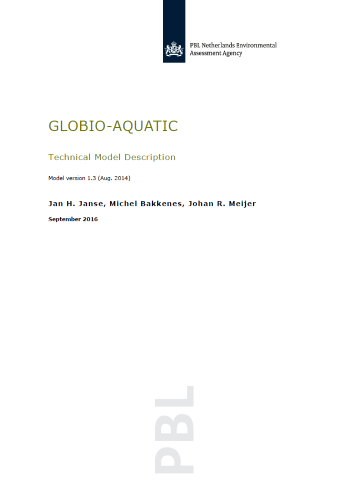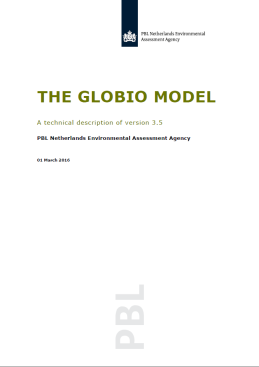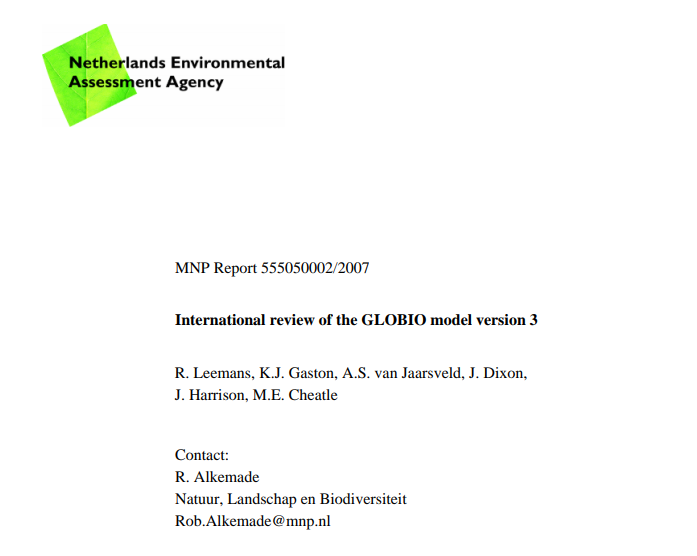This report covers the technical description of the GLOBIO Aquatic model.
This report covers the technical description of the GLOBIO Aquatic model, v. 1.3 (Aug. 2014), as an addition to the paper by Janse et al. (2015), where a more elaborate explanation of the model’s functionality, rationale and a critical discussion can be found.
The GLOBIO-Aquatic model
The GLOBIO-Aquatic model (Janse et al., 2015) describes the effects of human-induced changes to the environment on the biodiversity of freshwater ecosystems. GLOBIO-Aquatic covers wetlands conversion and effects on biodiversity of major anthropogenic pressures. Like in the terrestrial model, the biodiversity response is expressed as a biodiversity intactness index, and the driver-impact-relationships are based on meta-analyses of empirical data from literature. The report describes the following:
- the overall model structure and elements
- the included drivers
- the biodiversity responses in rivers, wetlands and lakes
- the algal bloom response in lakes
- the aggregation procedure




